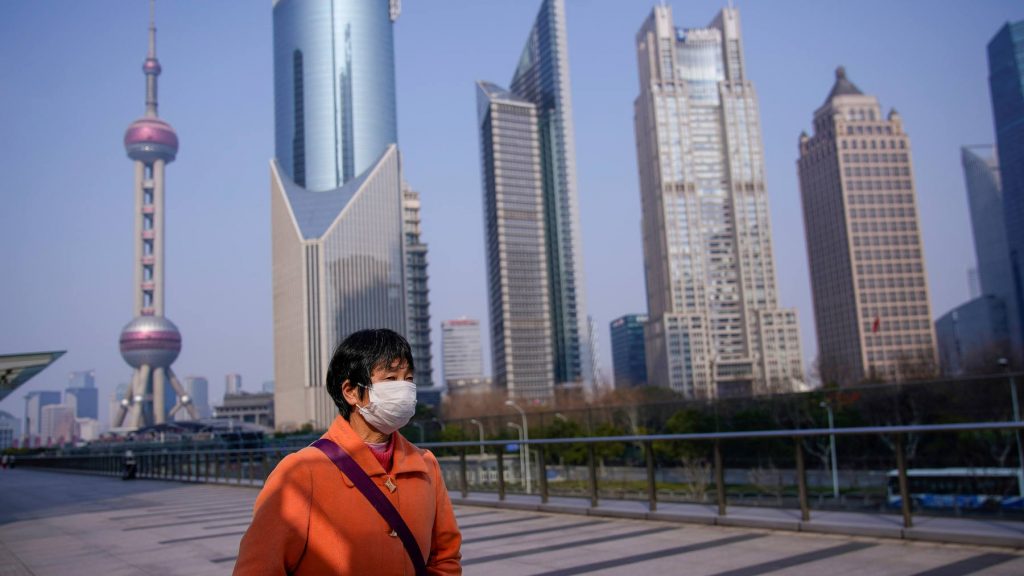
- ARAB NEWS
- 09 Jul 2025

For the past few weeks the coronavirus has dominated headlines across the globe.
In Africa, the Nigerian Red Cross says it has placed 1 million volunteers on alert to stop the spread of the virus. Many European countries have evacuated citizens from China’s Wuhan province and placed them in quarantine. Strong restrictions on travel to and from China have been enforced by some countries in the Middle East. The virus even got a mention in US President Donald Trump’s recent State of the Union address in which he declared: “My administration will take all necessary steps to safeguard our citizens from this threat.”
This is truly a global issue.
The latest coronavirus figures are eye opening. More than 630 people have died, and almost 30,000 more infected. These figures change by the hour, so by the time these words are read the numbers will be even higher.
Most agree that the Chinese government was slow to report the true extent of the coronavirus’ presence. With the number of those infected or killed rising by the day, it is not clear if this is a result of better reporting by the Chinese authorities or because the virus is spreading more quickly. It is likely that the reality is somewhere in between.
While much of the focus on the coronavirus has been rightly about halting its spread or finding a vaccine, there are also two broader geopolitical implications to worry about.
The first is the spread of disinformation about the virus. Across various social media platforms there are dozens of videos and photos accompanied by stories claiming miracle cures, incorrect figures for the number of cases, and false claims that the virus is present in some areas. The most direct effect of this disinformation is false media reporting, but in the worst case it could lead to harm or death. But there is also a geopolitical implication for the spread of this disinformation.
For example, five different media outlets in the Baltic region were recently hacked and had a false story posted on their websites saying that US soldiers based in Lithuania as part of a NATO force had been diagnosed with the coronavirus. The presence of US troops in the Baltics has been a controversial issue for Russia. And Moscow has a track record of leading misinformation campaigns in Estonia, Latvia and Lithuania to discredit the US role there.
Secondly, more attention needs to be placed on the potential economic impact of the virus. The stakes are higher today than in the past. Today the Chinese economy accounts for 17 percent of the global economy. During the SARS epidemic in 2003 it was only 4.5 percent. Crude oil prices have dropped 20 percent since early January. It is estimated more than 80 percent of China’s manufacturing industry is closed. An interdependent global economy and reliance on Chinese exports by countries such as the US mean there will be a knock-on effect felt all over the world.
The airline industry has been heavily hit. At least 60 airlines from 44 different countries have stopped direct flights to mainland China, and this number is rising by the week.
Interestingly, the state-owned Ethiopian Airlines has bucked the trend and continued flights. Even after coming under attack on social media, the airline has refused to change its policy. Many people traveling to different destinations in Africa first pass through Addis Ababa while using Ethiopian Airlines’ extensive flight network. There are concerns that Africa will remain unnecessarily vulnerable to the spread of the virus due to continued flights connecting the continent with China.
Of course, it is no secret that China has invested heavily in infrastructure projects in Ethiopia over the past few years. It is only natural to ask if Chinese pressure on Ethiopia has resulted in Ethiopian Airlines continuing its flights. If this proves to be the case, it will demonstrate a whole new level of Chinese influence on the continent.
An interdependent global economy and reliance on Chinese exports by countries such as the US mean there will be a knock-on effect felt all over the world.
Luke Coffey
Even with the blanket coverage around the globe, it is important to place the coronavirus in its proper context. In the 14th century, the bubonic plague killed 200 million people across Eurasia. The Spanish influenza of 1918 claimed an estimated 50 million lives. The Centers for Disease Control and Prevention (CDC), America’s health protection agency, said that from the beginning of October 2019 to the end of January 2020 there have been up to 26 million flu illnesses in the US alone, causing up to 25,000 deaths. So while it is important to avoid understating the risks associated with coronavirus, it is also important not to exaggerate the problem.
The situation with the virus will get worse before it gets better. The World Health Organization said that the outbreak has yet to peak. As medical professionals and public health officials act to halt the spread and treat those infected, policymakers cannot ignore the second and third-order effects of the virus. Whether it is disinformation attacks, such as the one against US forces in the Baltic region, or a dip in the global economy, the geopolitical consequences of coronavirus cannot be ignored.